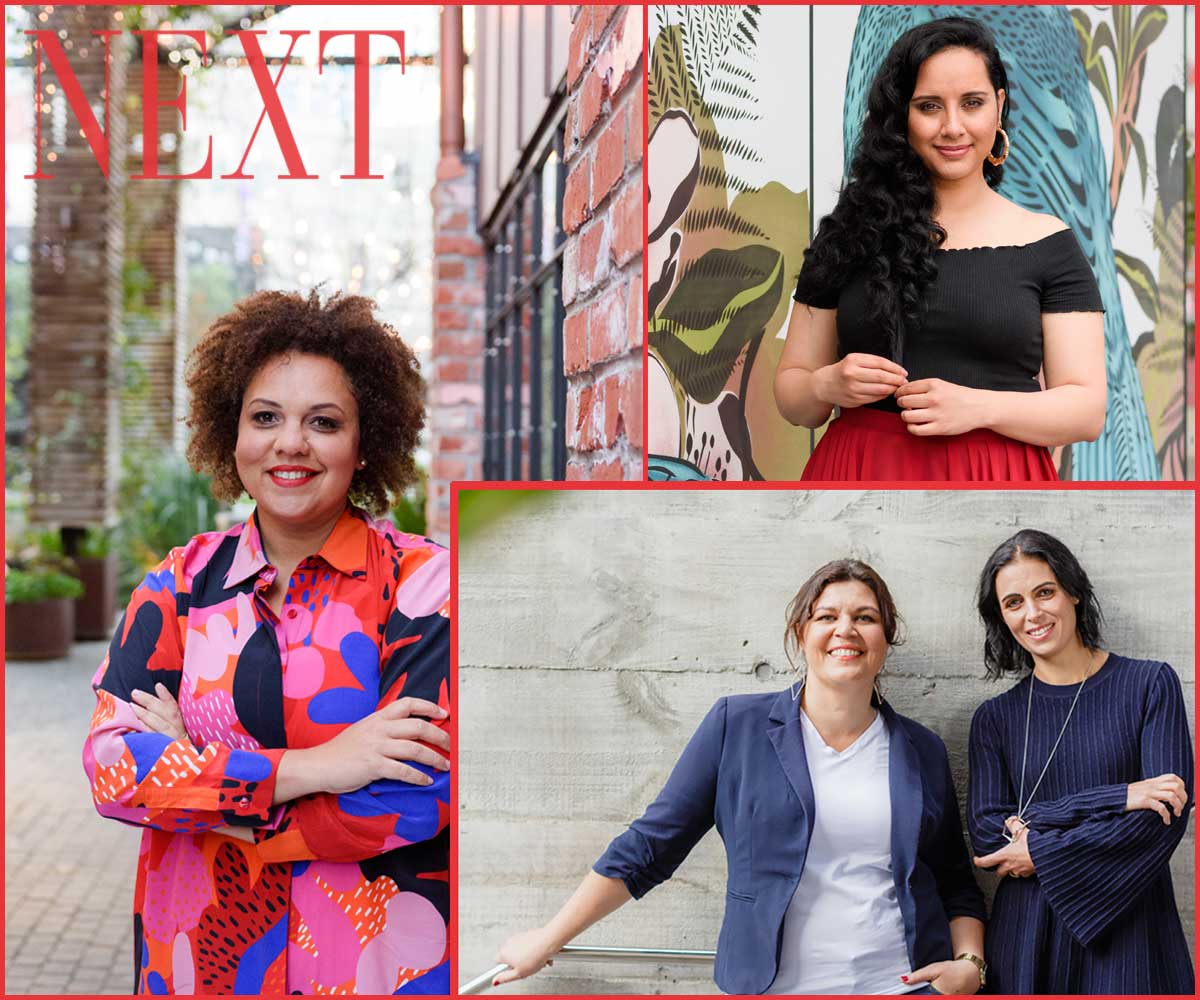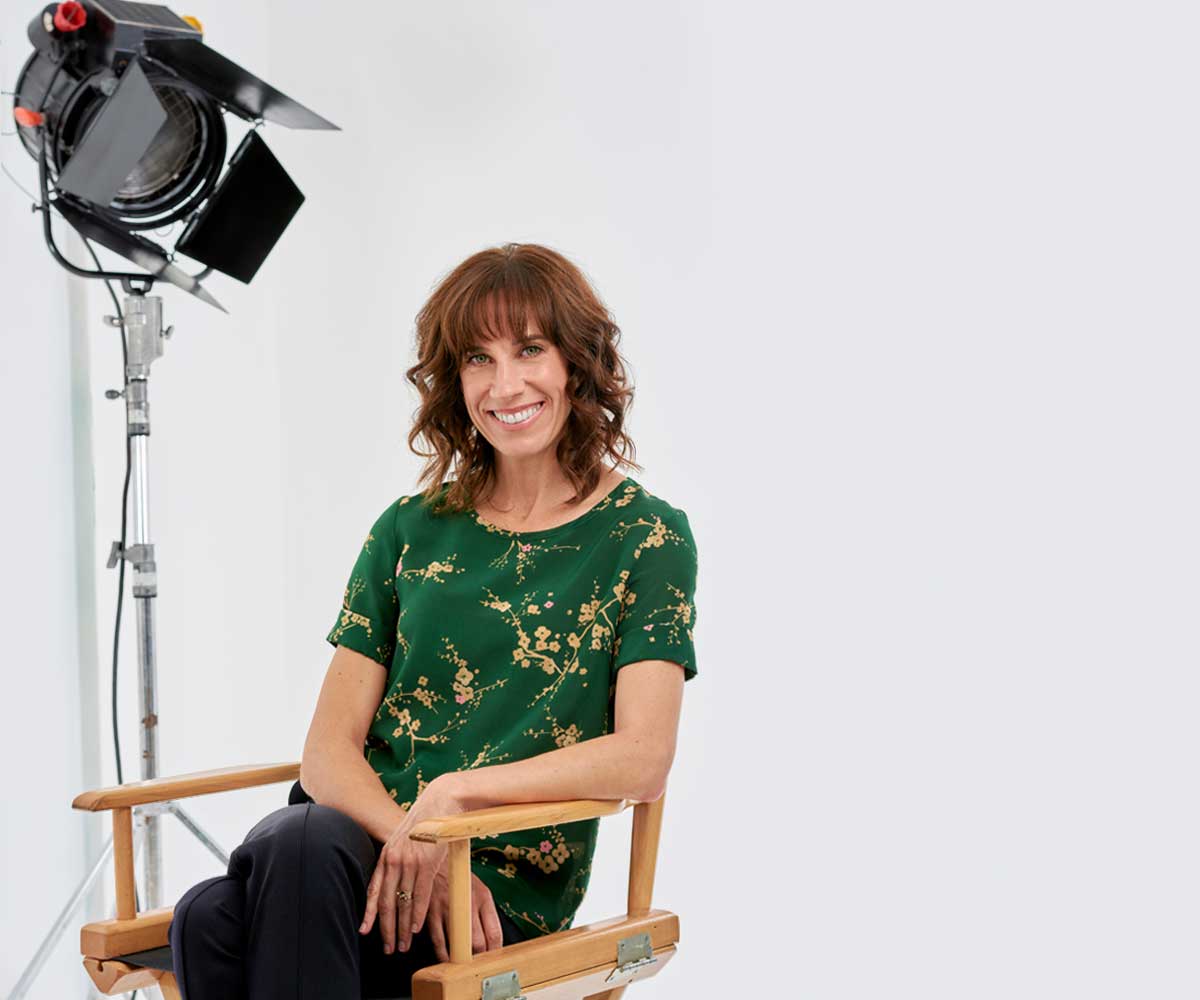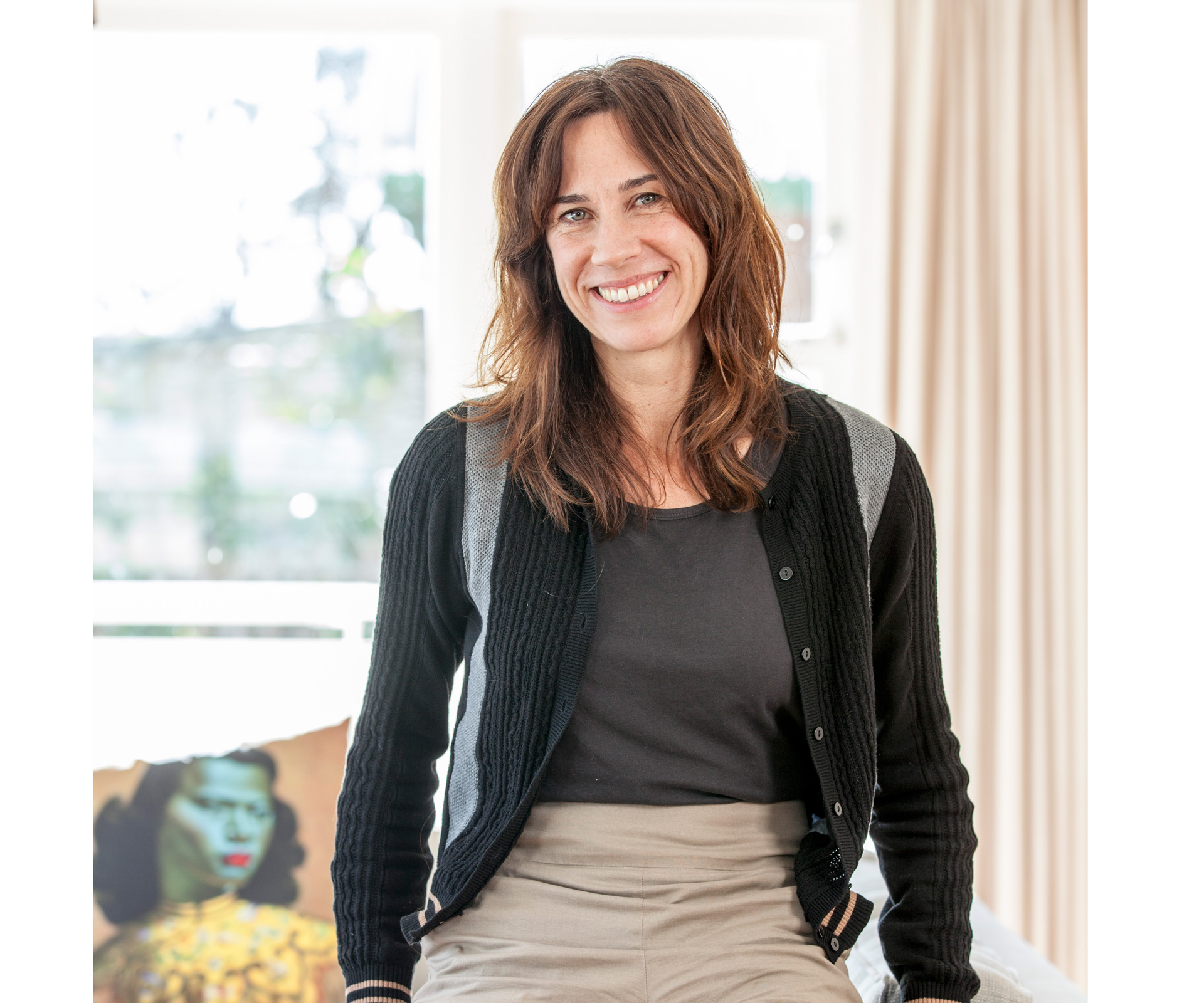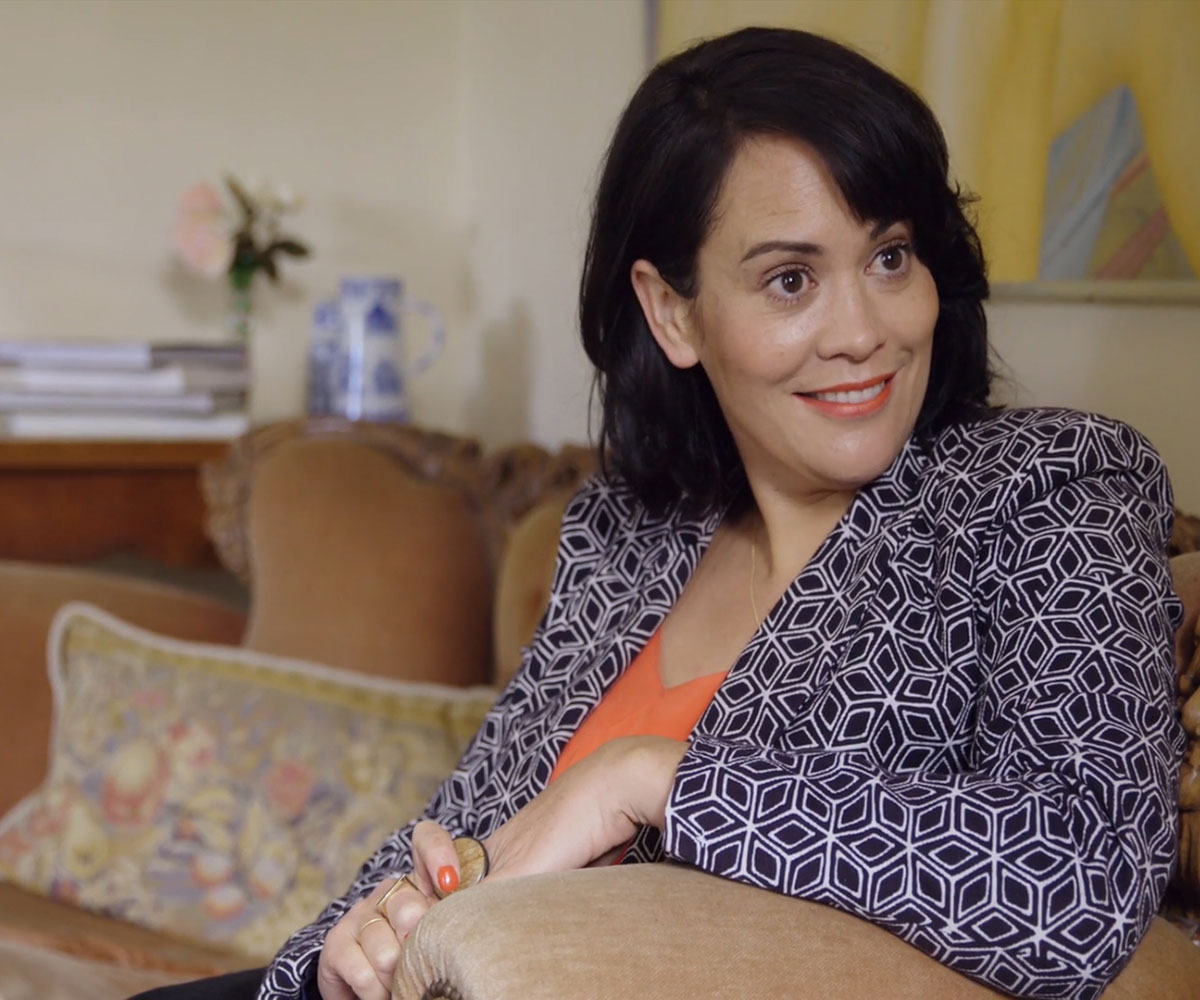When it comes to storytelling, representation matters. We meet four Kiwi creatives who’ve made giving screen time to New Zealand women their mission.
Kerry Warkia
As a producer and actor, Kerry Warkia has produced several high-profile web series and the feature film, Waru.
For the past 13 years, Kerry has been at the forefront of creating some of New Zealand’s most ground-breaking television and web series. Running production company Brown Sugar Apple Grunt (BSAG) alongside husband Kiel McNaughton, her career wins and accolades include producing Māori Television’s first drama series This Is Piki, and being named ‘Woman to Watch’ at the 2014 Women in Film and Television New Zealand Awards.

Kerry Warkia
Why representation can mean speaking up for those without a voice
But it was her first feature film Waru that thrust Kerry into the international spotlight, when it premiered at the Toronto Film Festival in 2017. Comprised of eight vignettes made in collaboration with nine female Māori filmmakers, it focuses on the confronting story of a young boy, Waru, who has died as a result of abuse.
Partly inspired by the high-profile murder of Rotorua toddler Nia Glassie in 2007, and the race-based conversations that played out in the aftermath, it shines a light on the assumptions commonly made about Māori and Polynesian society, and that Kerry has experienced first-hand. In an interview with the New Zealand Herald on the eve of Waru‘s release, she talked about taking her then-seven-year-old son to the hospital with an infected scratch on his back, and being accused by a nurse of neglect or worse.
“In that moment I kind of thought to myself, ‘Wow, we [non-Pakeha parents] really do carry the weight of this [history of abuse],” she said.
Striking a chord with local and international audiences, Waru went on to make $400,000 at the New Zealand box office. Following on from its success, Kerry has combined forces with Kiel to produce her second feature film, Vai, an exploration of empowerment through culture, as told through one woman’s life-story.
Written and directed by eight women and set in seven Pacific Island countries, Vai, which opens in cinemas nationwide on April 4, again puts indigenous culture and craftspeople front and centre. A third feature film, Kainga, is still in the early stages of planning, but Kerry says she’d like to collaborate with Pan-Asian Kiwi female writers and directors.
“At BSAG we have a specific focus on supporting and uplifting under-represented voices, because we feel strongly that it’s important to take control of our own narratives, to tell our stories from our perspectives, and to see ourselves on screen,” she says.

Why supporting diversity in media is important
Although she’s noticed a change in critical reception from when she first started telling female, indigenous stories, Kerry says it can still be a hard pitch. And as a female in the film and television industry, constantly being questioned in a way that her male counterparts aren’t can get exhausting, so a support network is really important.
But, she says, there are positive changes happening in areas like financing and sales, and all the good more than makes up for the bad. For Kerry, a major win is knowing that her Māori-Chinese-Pacific-Pakeha daughter will be able to watch three New Zealand feature films with female leads in every role, each made by a collective of Māori, Pacific-Kiwi and Pan-Asian-Kiwi women.
“That’s worth every challenge,” she says.
To be able to tick that box will be huge for Kerry, who founded BSAG with the goal of improving the state of representation of women and of people of colour on, and behind, New Zealand screens. In the future, she dreams of running a well-financed production house full of a diverse range of women making “wonderful” stories.
“I’m excited about what the future holds for representation. It’s terrific to see the opportunities being created for women and to see diverse women coming through in all areas of the industry. And if you’re an empowered woman in the industry, I think it’s important to make the time to empower or help other women.”
As for the first female storytellers she’s looked up to and felt inspired by, Kerry credits her mother and grandmothers.
“They created an important foundation and nurtured my desire to tell stories, and taught me how to find joy, humour and lessons in our traditional stories. They are a huge influence in my life and all my work,” she says.
Hanelle Harris

Hanelle Harris
Starting off as an actor, Hanelle has since broadened her resumé to include producing, writing and directing, with a focus on telling Māori and Pasifika stories.
Hanelle Harris was an actor in her early twenties when she noticed there was a lack of diverse stories being told by New Zealand’s film and television industry.
“I was being sent briefs for roles and none of them excited me,” she says. For a start, they weren’t leading characters.
“Or if they were, they certainly weren’t very dimensional.”
But for Hanelle, the biggest problem was that she was being typecast as the young, hot female love interest.
“At 20 I was already a mother, and these parts just didn’t resonate with me.”
What started as a conversation between her and a friend soon evolved into Baby Mama’s Club, the locally made, female-driven TVNZ OnDemand web series based around four women with one main thing in common – the father of their children, Johnny, who in the pilot episode has gone AWOL.
Now with two critically-acclaimed seasons in the bag, a New Zealand Television Award for Best Web Series, and a spin-off series called Sis, Baby Mama’s Club is flying the flag for representation on Kiwi screens, and redefining what successful storytelling means here.

The importance of seeing new perspectives on screens
With the characterisations informed by the real life experiences of the four female leads – three of whom were young mums themselves – there’s a level of authenticity there exactly of the sort that Hanelle craved early in her career. But with the main cast all of Māori and Pasifika descent, the show also makes indigenous people a centrepiece, rather than a token inclusion. And very deliberately, it portrays them in ways that they haven’t been portrayed in the past.
“I think it’s fair to say that brown people are sick of seeing and playing the same stereotypical characters: gangsters, criminals, lower socio-economic types. We deserve better. We’re people from all walks of life and yes, some of us exist in the higher echelons of society,” says Hanelle.
For Hanelle, such stereotyping is a direct result of there being not enough Māori and Pasifika talent behind the scenes.
She says a dearth of talent isn’t the problem – what’s there just isn’t being nurtured. And while she’s doing as much as she can in that department, she believes a long-term solution requires buy-in from bigger production companies.
“If mainstream production companies would commit to hiring brown artists, they’d have the opportunity to hone their craft and attain industry-standard skills, and develop the tools and resources to branch off and make their own content,” she says.
She’s adamant that the return on investment would be more than worth it.
“It’s no secret that Māori and Polynesian stories make money. Look at New Zealand’s top grossing films of all time. Look at the most successful filmmakers to come from this country.”
She posits that diversity is what makes our stories stack up on an international stage. “So why not invest in diverse storytellers?”
With the internet allowing for unprecedented audience reach, more international audiences than ever before are tuning in to Kiwi-made content. Hanelle says that Baby Mama’s Club has even found a famous fan in Dinah Jane – the Polynesian-American singer and member of The X Factor-founded pop group, Fifth Harmony. But she asserts that local support – including viewer feedback in the form of online reviews – continues to be absolutely crucial.
“For projects like BMC to continue, audiences need to be more vocal about what they want. Sharing a post or review online costs you nothing, but this type of feedback is invaluable to us as creators because we can use it as proof when we go for funding,” she says, adding that if it wasn’t for the “passionate outcry” from audiences for more local content, she’s not sure if BMC would have been funded at all.
Speaking up for your own demographic
For Hanelle, the positive audience response to BMC was almost a surprise, given that she was told by producers at the first hurdle that the show didn’t have broad appeal. It’s also been the biggest reward for her efforts.
“To receive lengthy messages commending us for the authenticity of the characters, and to hear from Māori and Pasifika viewers that seeing their culture and hearing their language on screen fills them with pride, it’s immeasurable. No critic review will ever mean as much as giving someone that sense of validation.”
Though she has felt more disadvantaged in her career due to her race than her gender, she says that women do face extra challenges both behind the scenes, and on screen.
She believes that getting more women on writers’ panels would be a good start, and that stronger female characters would be a direct consequence.
“It’s hard to expect a male to truly understand the inner-world of a wahine who is pregnant or miscarrying,” she points out, adding that these narratives should always be handled by women.

Passing the baton and creating opportunity for other Māori and Pasifika people
As for being a working mum, she acknowledges that the struggle of the juggle isn’t unique to her, or to those in the film industry. But nevertheless, the question of whether she’s hitting the right balance of personal versus professional life is still constantly front of mind. She’s conscious of the milestones she’s missed in her two kids’ lives, and she says that jobs that take her away from Auckland for any length of time are particularly tough.
“It really does throw your home into a bit of chaos and you have to factor in a period of recovery before you’re on to the next one.”
Her heavy workload has even made her have to think hard about whether she’d be up to the task of adding another child into the mix.
“Having more kids is something I think about often, but it’s a very daunting prospect given the extreme hours I work.”
In the meantime, she’ll stick to raising up the next generation of storytellers – the best part of her job, she says.
“I love meeting ambitious young people as they remind me of myself, and it’s really humbling. I sometimes forget that I was once just a little girl being raised by her grandparents in Kaikohe, and dreaming of being on the big screen.”
Though she’s enjoying being in front of the camera now that she’s playing a character that speaks to her, she says that since getting behind it, her life’s purpose – sharing indigenous stories – has really come into focus.
“I know I was given this gift to help with the progression of my people,” she says, adding that she hopes her storytelling gives society an insight into the real lives of Māori and Pasifika women.
As well as a third season of BMC, Hanelle has two new television series in the works – including one inspired by her sister, who was the first female in history to be awarded the Sergeant Major award during recruit training for the NZ Army. The other series, a Māori and Tongan rom-com, is a little earlier on in the process, but she’s just as excited, because “it means more representation for my people on screen.”
“Through these projects, I hope New Zealand audiences understand just how powerful and beautiful my people are,” she says.
Ainsley Gardiner & Georgina Conder

Ainsley Gardiner (left) and Georgina Conder
Producers Ainsley and Georgina are passionate about promoting strong female characters on-screen. Their stellar CVs include documentaries, TV shows and the recent rom-com hit, The Breaker Upperers
Passionate advocates for their industry, Ainsley Gardiner and Georgina Conder are sharing their experience to advance opportunities for women in front of and behind the screen – including the recent hit The Breaker Upperers.
Having known each other throughout their careers and worked on individual projects including their own production companies, the pair joined forces in 2015 to establish Miss Conception films – with the motivation to see more strong female characters on screen.
Focusing on including females both on screen and behind the scenes
As producers behind the scenes, they found they had complementary skills. “Producing is pretty hard, so it’s great to do it as a team, and have someone to talk to,” says Georgina.
“We both have three children, and we both think it’s important to prioritise trying to have a work life balance. Putting our families first, but still being able to do our work, is something we had in common.”
Together, and individually, they have a compelling pedigree: Ainsley has worked closely with Taika Waititi, co-producing his films Two Cars, One Night, Eagle vs Shark and Boy, while Georgina worked as a line producer on both those feature films, and as co-producer on Consent: The Louise Nicholas Story and Free in Deed. Ainsley, who last year was named a Member of the New Zealand Order of Merit for her work in film and television, was one of eight female Maori directors involved in fellow producer Kerry Warkia’s 2017 anthology film Waru.
But it’s Ainsley and Georgina’s work together under the Miss Conception umbrella that sees them focus specifically on female-led stories. As well as co-producing The Breaker Upperers, the pair was behind She Shears, a documentary celebrating the rural New Zealand story of Kiwi female shearers. Both reflect their combined passion for increasing the number of women behind the scenes, which in turn influences representation on screen.
“I can’t say it any better than [US creator, showrunner, director and writer] Jill Soloway, who talks about the female gaze, and the way that we look at things, and the way in which, historically speaking, the world we live in is framed through a male gaze and a male paradigm,” says Ainsley. “So the more that we’re able to tell our own stories, by ourselves, from our perspective, the better.
A lot of the time, particularly in genre films, you’re still following the rules that exist in a male paradigm. For us again, it’s a male paradigm but also a Hollywood paradigm – New Zealand storytelling doesn’t actually have to follow the same rules, but we naturally do.
It’s the same with indigenous storytelling, feminist storytelling. As long as you are pushing hard to get another point of view, then it absolutely changes both the way we’re represented, and the way we’re seeing ourselves.”
Aiming for equal opportunity representation in film
Both agree that the conversation needs to extend to all elements of production, although they’re realistic about the difficulties of finding women to fill technical roles in particular. They consciously made an effort to employ a predominately female crew on The Breaker Upperers, but know more needs to be done.
“We talked about the numbers and assumed we’d have 75-80 per cent women, but when we actually counted, it was actually only around 55 or 60 per cent,” says Ainsley.
“It was far less than it seemed because you’re so used to having a predominately male crew that any change feels like a massive change. But when you’re analytical about it, you see, actually we’re making tiny, incremental steps – and that’s why we need to do more.”
For Ainsley and Georgina, there is a determination to bring other women up with them – but of equal importance is diversifying the stories that New Zealanders see on their screens.
“I definitely think we can do better, but there are also a lot of people out there trying to do that,” says Georgina of where she thinks New Zealand is at currently.
“There are a lot of people trying to break through. New Zealand screen has been quite white for quite a while, and that doesn’t reflect our population. It’s very important that it’s not just male and female, it’s also about diverse cultural identities.”
Fresh from the success of The Breaker Upperers and She Shears, Ainsley and Georgina are working on future releases that further their passion – producing a film adaption of iconic New Zealand author Patricia Grace’s novel Cousins; a psychological thriller with a role for an older actress; and comedies from three first time writer/directors.
They note that there has never been a shortage of female producers, so say the key is using their influence and experience to further the cause, lending a hand to other female storytellers in the industry.
“Working with emerging female writer/directors is one of the best ways to create a kind of groundswell, because those are the voices we’re missing,” says Ainsley.
“Women in producing have always been trying to make incremental changes to the system and the industry – but until we’re actually funding projects written and directed by women, about women, for women, produced by women, I don’t see any other way of making actual change.”



